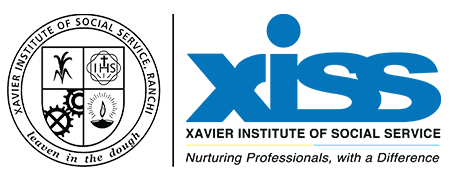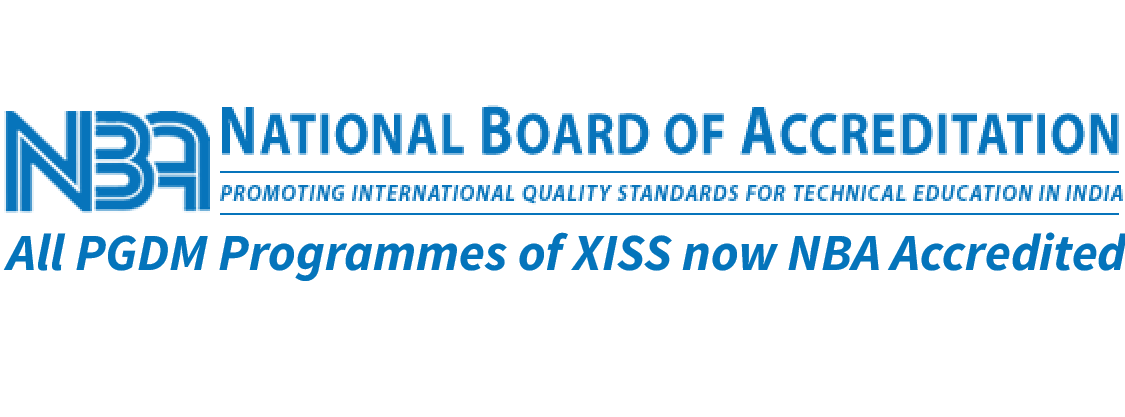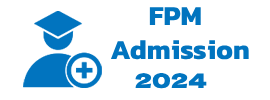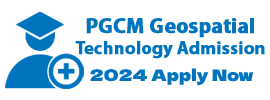Programme Overview
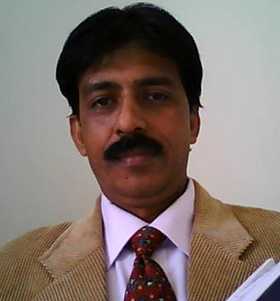
Dr Shyamal Gomes
Head, PGDM
(Human Resource Management)
The two-year Post-Graduate Diploma in Management (Human Resource Management) aims at preparing young men and women to face challenges in the domain of Human Resource Management. Apart from the fundamental theoretical inputs in Human Resource Management, Industrial Relations and Human Resource Development, the programme seeks to equip students with practical knowledge and requisite skills to be effective in their profession. Stress is laid on the development of dynamic personality by nurturing in the students, values and attitudes built on the firm edifice of keen social-awareness.
PGDM-HRM is one of the oldest and the flagship program of XISS, Ranchi. XISS has been offering two years Post Graduate Diploma in Personnel Management (PM) approved by AICTE since 1994. Earlier this course was named as Post Graduate Diploma in Personnel Management & Industrial Relations (PM&IR) for working professionals. This program was renamed in 2012 as PGDM-HRM. PGDM-HRM is unique in its value-based orientation preparing HR professionals with a difference with a special IR-ER focus. The PGDM - HRM has been divided into different segments; the first year comprises of diverse Foundational/Compulsory courses related to Human Resource Management, Social Service Field Works, Rural Retreat and Industrial Visits. At the end of first year, students go for summer internships in different organizations for a period of 8 weeks during the month of April and May. Students are provided with assorted Elective courses in the second year in order to specialise in their area of interest. Industrial tour is also an integral part of second year curriculum with a view to expose students to latest practices of industry. The academic session in each year begins in the month of June and ends in April the following year. An academic year consists of three trimesters, each trimester spanning across 11 to 13 weeks. Besides, the Annual Convocation for the graduating batch normally takes place in the month of April.
The Institute proposes to make its students agents of social change, who see their future not primarily as a career for self-enrichment but as a way of contributing their part to the basic evolution that is taking place in India today.
In this context, the imparting of knowledge and skills is of vital importance, but even more crucial is the purpose for which this knowledge and these skills are utilized. Will they contribute to justice for the poor and oppressed, more social concern, more honesty and cultural understanding, rather than the maintenance of the status quo and a lopsided distribution of power and benefits? This will, to a great extent, depends on the values that students carry with them when leaving the Institute.
To prepare students for the challenging tasks that await them, the programme equips them with knowledge, skills, and values.
This can be spelled out as follows:
-
Students are acquainted with the problems of today’s society, with the uneven distribution of power and wealth, the problems of rural development, Industry, management, and industrial and social administration. This is done through a broadening of horizons by making available information in the form of books and magazines, research reports and by generating in students the desire to learn more as a lasting inclination for the rest of their professional lives.
-
Students are taught to reflect for themselves. The analytical and logical powers are developed so that they can comprehend problems and their implications. This is done through case studies, field visits, exposure camps and seminars.
-
Efforts are made to awaken in the students a scientific interest in social and management problems and to equip them with a workable knowledge of research principles and techniques.
-
The communication and interpersonal skills of the students are developed, so that they can express themselves clearly and with self-confidence and exert influence on others. Students are also trained to be good listeners, who are sensitized to the expectations of others, especially small people, and who can play effective role in-group situations.
-
Practical training assumes, in the light of objectives of the institute, grate importance and is therefore given considerable weightage in evaluating a student. Field work takes in the form of social work activities on a weekly basis work camp, community organization, labour welfare programmes, institutional visits, placement as an apprentice, and work in the slums of Ranchi.
-
Motivational Training: The programme tries to cultivate in the students values and attitudes that make of them agents of social change, a deep concern for the injustice perpetrated on the poor and a determination to set this right, respect for the dignity and right of everyman, women and child, especially the weak and exploited, a firm purpose to use one’s professional standing to struggle against corrupt or irresponsible practices or attitudes.
Programme Educational Objectives (PEOs)
- To Nurture young would-be HR professionals with holistic Human Resource Management education.
- To Prepare HR Managers to understand and acquire the strategic skills and take on the emerging HR-IR Challenges.
- To Prepare future HR managers to understand and add value to business and act as a strategic business partner
- To Imbibe in the Students, the values of team spirit, character centric leadership, solidarity, compassion, and social responsibility.
- To Develop a strong and enquiring mind in the pursuit of acquiring knowledge and conducting research for making the world a better place to live.
Programme Outcomes (POs)
- Apply knowledge of management theories and practices to solve business problems.
- Foster Analytical and critical thinking abilities for data-based decision making.
- Ability to develop Value based Leadership ability.
- Ability to understand, analyze and communicate global, economic, legal, and ethical aspects of business.
- Ability to lead themselves and others in the achievement of organizational goals, contributing effectively to a team environment.
- Apply knowledge of justice, sustainability and human resource management to build sustainable business organisations.
- Apply theories of economics for better business decision making to solve business problems in human resource management.
- Apply concepts of Labour Management and Employee Relations to develop and sustain a conductive industrial environment for business.
Course Structure for PGDM (Human Resource Management)
First Year (Core Courses) |
||
| Trimester I | Trimester II | Trimester III |
| Business Communication & Lab | Accounts & Financial Management | Business Ethics |
| Case Method & Case Research | Employment Relations Laws | Human Resource Development |
| Fundamentals of Labour Laws | Fundamentals of Industrial Relations | Human Resource Management – II |
| Management Information System | Human Resource Management - I | Industrial Relations at Workplace |
| Managerial Economics | Operations Research | Marketing Management for HR Managers |
| Organizational Behaviour I: Individual Behaviour in Organization | Organizational Behaviour II: Group Behaviour in Organization | Organizational Behaviour III: Organizational Structure, Design and Change |
| Principles and Practices of Management | Social Research Methodology | Production and Operations Management |
| Professional Social Work | Societal Analysis of Society and Justice Concerns | Qualitative Research Methods |
| Quantitative Techniques for Managers | Total Quality Management | Strategic Management |
| Social Service Field Work | Social Service Field Work | Social Service Field Work |
| Viva Voce | Viva Voce | Annual Retreat and Industrial Visits |
| Viva Voce | ||
Second Year (Elective Courses) |
||
| Trimester IV | Trimester V | Trimester VI |
| Business Laws | Compensation Management | Business Environment |
| Decision Support System | Data Analytics using R | Collective Bargaining |
| Emotional Intelligence and Managerial Effectiveness | Discipline Management and Dispute Handling | Corporate Social Responsibility |
| HR Metrics and Analytics | Human Resource Information System | Employee Counselling |
| Human Resource Planning | Learning and Development | Environmental Management System and Green HRM |
| Industrial Jurisprudence | Macro-economics | Executive Compensation |
| International HRM | Organizational Development | Gender and Development |
| International HRM | Organizational Development | Gender and Development |
| Performance Management | Principles of Labour Administration | Managing Diversity at Workplace |
| Psychology for Managers | Strategic Human Resource Management | Social Legislations for Indian Managers |
| Industrial Tour | Talent Management | Stress Management |
| Project Work | Taxation | Supply Chain Management |
| Viva Voce | Project Work | Introduction to Sustainable Development and Corporate Sustainability |
| Project Viva | Overall Performance Evaluation | |
| Viva Voce | Viva Voce | |
